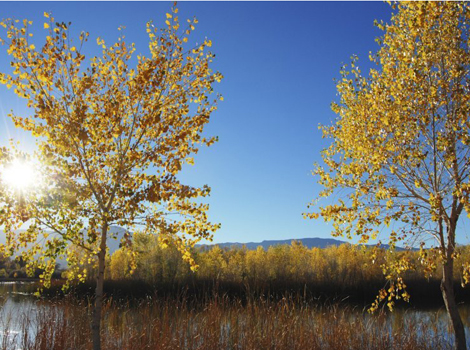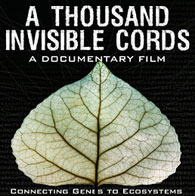Research

Community genetics, or ecological genomics, examines how genetic variation within a single species affects interactions with other species to alter the structure and diversity of ecological communities. Community genetics recognizes that individual species are embedded in a matrix of hundreds or thousands of interacting species and that the sum of their genetic-based interactions has community and ecosystem consequences. Community genetics is a rapidly expanding field because it provides an evolutionary framework for understanding how communities and ecosystems change over time in response to environmental challenges such as climate change. The understanding gained through a genetics approach can improve the management, restoration, and conservation of natural systems.
A genetics approach requires an integrative, interdisciplinary effort. The Cottonwood Ecology Group’s research program involves diverse fields of study from molecular genetics to ecosystem modeling with organisms ranging from microbes to insects and mammals. The group’s researchers are working together across diverse disciplines to investigate how genes and their extended phenotypes, or observable traits that result from interactions between genes and the environment, affect community structure and ecosystem processes at multiple levels.
Ecological genomics & heritability
Studies of cottonwoods—a dominant tree, or foundation species, of a threatened habitat type—show that genes have phenotypes that extend beyond the individual to have community and ecosystem consequences. Based upon this concept of extended phenotypes, the National Science Foundation awarded a $5 million grant (Grant No. 0425908) to Cottonwood Ecology Group members to address three major hypotheses: (1) biodiversity is an emergent property of extended phenotypes; (2) community structure, biodiversity, and ecosystem processes are heritable; and (3) ecological feedback loops result in genetic covariance and community evolution.
The research effort resulted in important new insights. One of the group’s basic findings is that the genetics of individual cottonwood trees play an important role in defining a large community of organisms and ecosystem processes such as decomposition and nutrient cycling. For example, genetic variation in host trees influences the evolutionary process of arthropods—spiders, ants, butterflies, and beetles. This work has contributed to the field of community genetics by linking genes to ecosystems.
